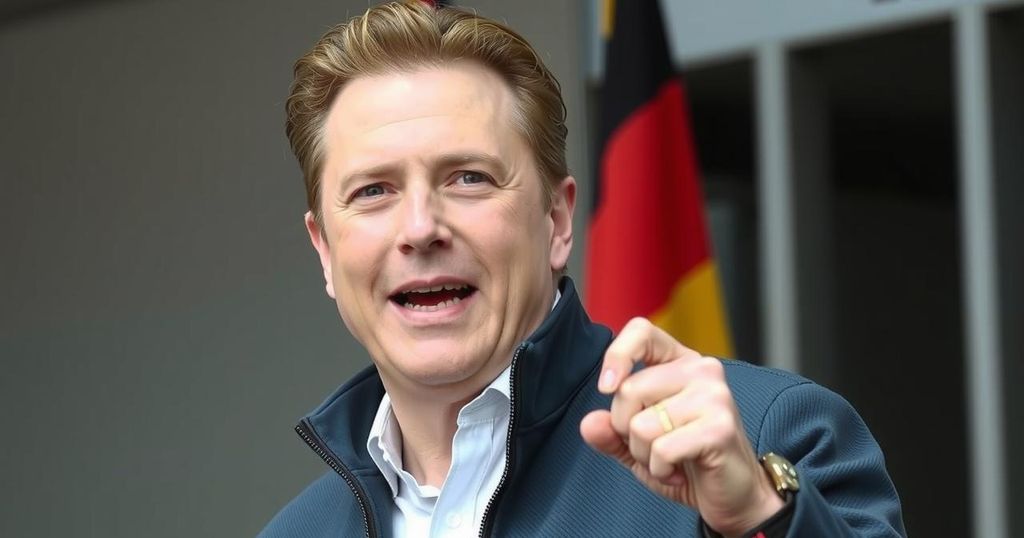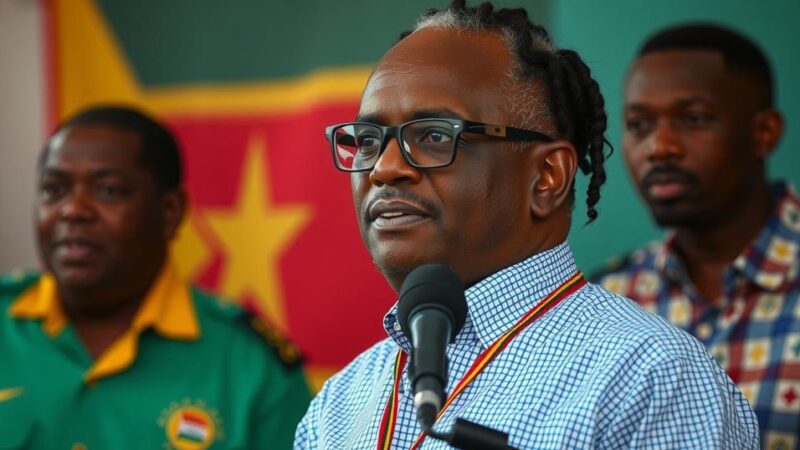Elon Musk has endorsed Germany’s far-right AfD party, stating it can “save Germany”. His comments have drawn criticism from Senator Chris Murphy and German Chancellor Olaf Scholz, highlighting concerns over the rise of extremist ideologies in politics. This situation underscores the complexities of Corporate influence in democratic processes and the normalization of radical political positions.
In a controversial move, Tesla CEO Elon Musk recently expressed his support for Germany’s far-right Alternative for Germany (AfD) party in advance of the upcoming elections. Through a post on X, he stated, “Only the AfD can save Germany,” while sharing content from Naomi Seibt, a noted far-right influencer. Seibt’s assertions invoked concerns about her promotion of harmful ideological perspectives and her dismissal of established climate science. This endorsement has drawn criticism from political figures, including Senator Chris Murphy, who accused Musk of endorsing neo-Nazi sentiments and highlighted the AfD’s problematic associations with historical extremism.
Despite Musk’s significant following on social media, the response from German politicians has been swift and critical. Chancellor Olaf Scholz, representing the Social Democratic Party, rejected Musk’s claims, emphasizing the dangers of far-right extremism in German politics. The AfD has gained substantial support in recent months, currently polling in second place for the February elections. Nonetheless, major political parties have generally avoided collaborations with the AfD, owing to its radical views and the party’s attempts to rehabilitate the Nazi legacy.
Musk’s political endorsements extend beyond Germany, as he has voiced support for right-wing figures across Europe and South America. His backing of such figures raises alarm about the influence of wealthy individuals in shaping political discourse and the potential ramifications on democratic values. This intersection of technology, influence, and politics calls into question the implications of corporate power in governance and public policy discussions.
Elon Musk, a prominent figure known for his vast wealth and influence as the CEO of Tesla, has been increasingly vocal in political matters, particularly those aligning with right-wing ideologies. His recent endorsement of the far-right AfD in Germany emphasizes growing political polarization and the mobilization of extreme viewpoints in current election climates not just in Germany but across Europe and South America. The AfD has consistently been criticized for its extremist positions and attempts to associate itself with troubled histories, raising significant concerns among political commentators and public figures regarding the normalization of such ideologies in mainstream politics.
In summary, Elon Musk’s endorsement of the far-right AfD party represents a contentious moment in the context of politics and corporate influence. His support has garnered significant backlash from political leaders, further spotlighting the challenges faced by democratic societies when confronted with the rise of extremist ideologies. The intersection of Musk’s private interests and political endorsements suggests profound implications for future electoral dynamics in Germany and beyond.
Original Source: www.cnbc.com







